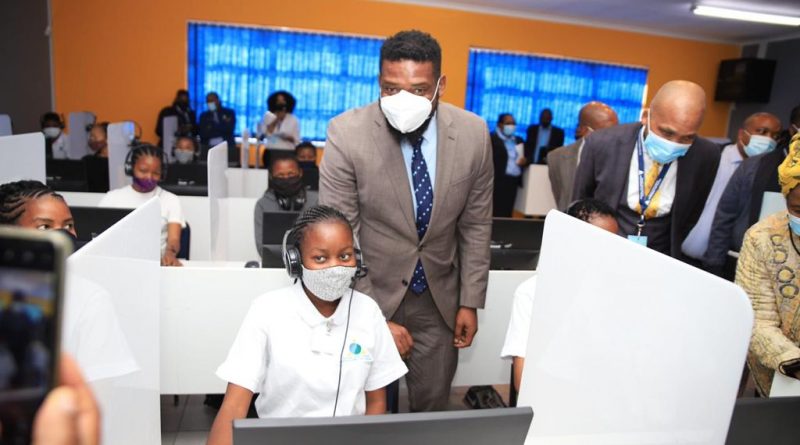Sekhukhune TVET College gets state-of-the-art multimedia centre
MOTETEMA– Higher Education, Science and Innovation Deputy Minister Buti Manamela has emphasized that investigating in ICT infrastructure would not just enable to respond more creatively to the COVID-19 pandemic but provide a better position to take full advantage of the Fourth Industrial Revolution opportunities.
Deputy Minister Manamela said to be able to achieve that, there had to be understanding of the existing capacity.
Manamela added that the country continued to struggle with issues of rural broadband internet connectivity, ICT skills, universal access and provision of ICT-enabled government services and that the scourge of the digital divide continued to scupper the development efforts to some considerable degree.
The Deputy Minister was speaking during the handover of the 40-seate state-of-the-art ICT centre at Sekhukhune TVET College’s CS Barlow Campus in Motetema outside Groblersdal.
“For instance, urban areas that represent the privileged minority population generally have advanced ICT infrastructure compared to what the majority population living in rural and urban townships have. And as a result, the underdeveloped areas continue to struggle to access basic services, purely because of little or no access to ICT infrastructure. A example of this is the disparities of Wi-Fi access, but also within various parts in urban areas. Against this backdrop, government has long identified ICT as key technological platform with which to enhance the quality of service delivery in areas such as education, health, poverty eradication, rural development and rive industrial and economic development. This immeasurable potential of ICT continues o inform government strategies, policy and legislative frameworks and for this reason, in collaboration with the Department of Communications and Digital Technologies, we will soon resume negotiations with Mobile Networks Operators (MNOs) for a long-term solution to the provision of data for students within the Post-School Education and Training (PSET) system,” said Manamela.
Manamela added that the intension was to make sure that no student got left behind during the turbulent times of the pandemic.
He said they also sought to find a sustainable long-term strategy that ensured that the PSET sector did not revert back to pre-COVID-19 status in relation to access to online resources by students and lecturers.
In a bid to contribute to ICT in the PSET system, the MTN Foundation has partnered with the office of Deputy Minister Manamela to extend the programme to TVET Colleges. Sekhukhune TVET College is the second campus to receive a multimedia centre that will assist students with their e-learning and accommodate the needs of partially sighted and blind students.
Manamela praised the focus of the MTN Foundation on ICT in disadvantaged institutions and said it resonated with the intent of their own interventions in the PSET sector, which were aimed at achieving acquisition of devices for students and staff and for the distribution to those recipients, the upgrade of Learning Management Systems, ICT hardware, bandwidth, ICT security features and acquisition of appropriate software applications.
And the distribution of data to students and staff as well as the training of staff and students in the use of alternative teaching and learning strategies.
“We therefore view the investment by the MTN Foundation as enabling government’s effort to modernize our public education system through the use of various information and communication technologies,” said Manamela.
The campus expressed appreciation of the interventions to position the country as a leader in ICT in the 21st century and beyond.




